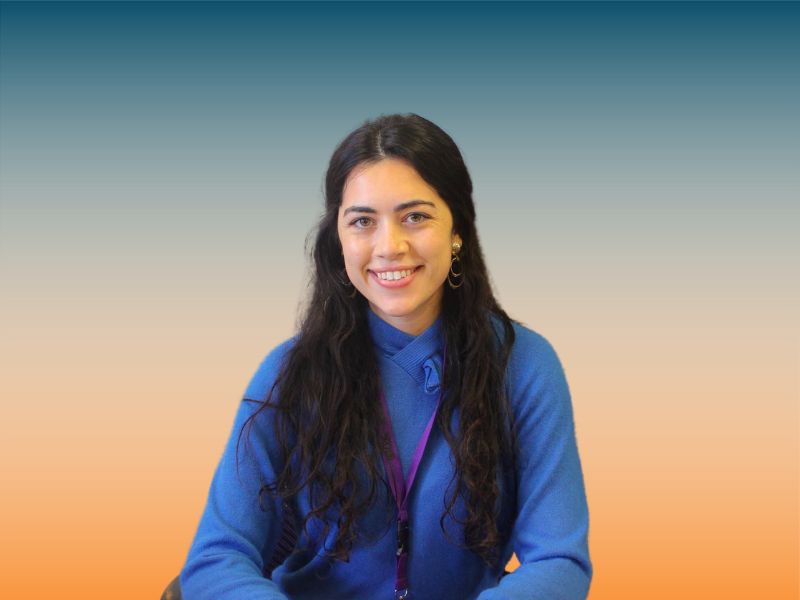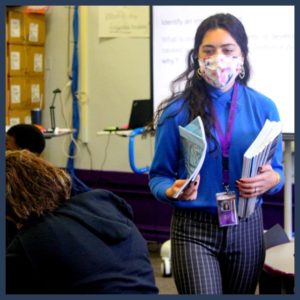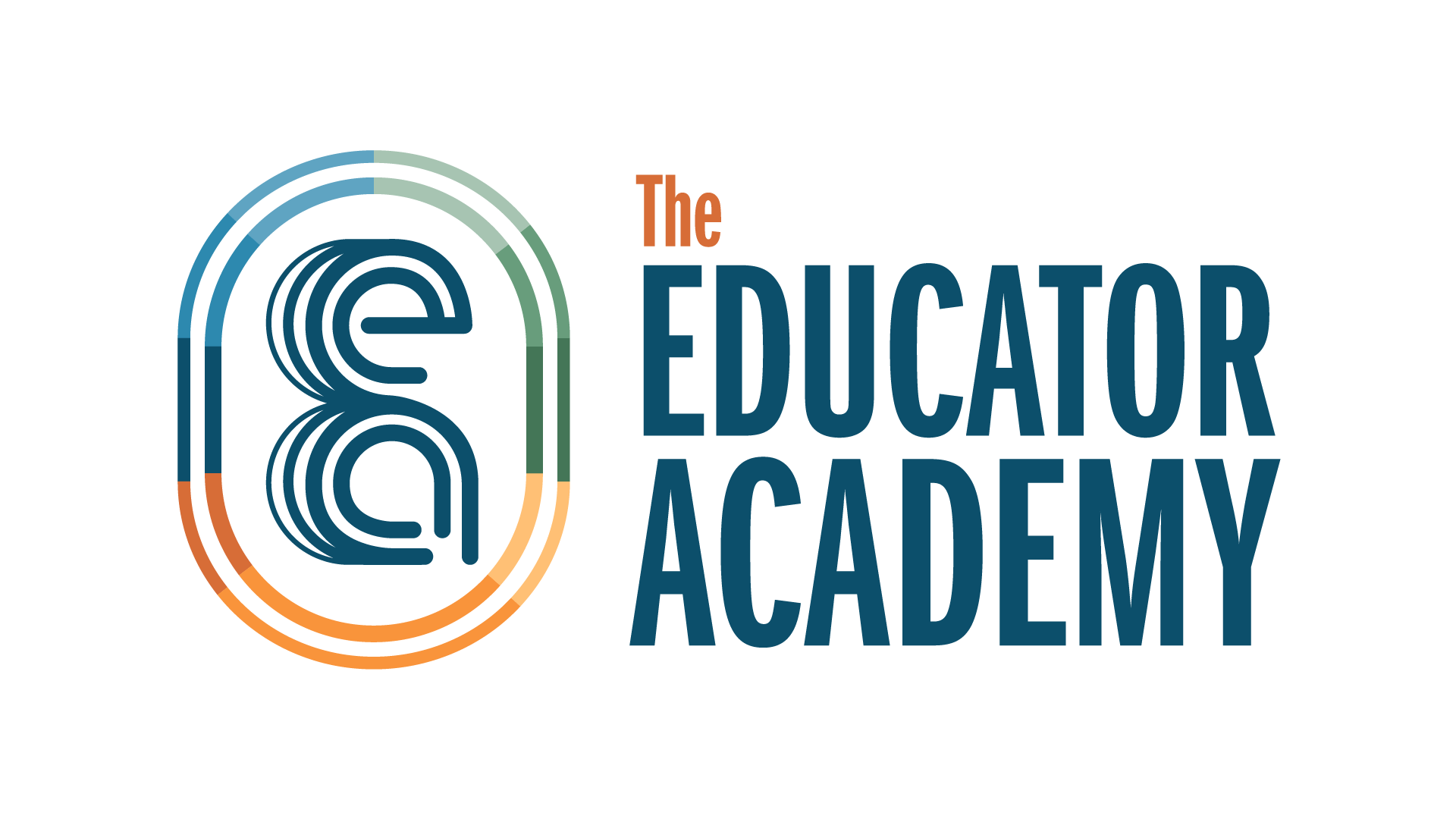
Highly Effective Teaching
Cohort 5 Teacher Highlight
We got to sit down and chat with Bailey Conard, a teacher at Kansas City International Academy and Cohort 5 Resident about what it means to be Highly Effective Teaching. Bailey began her residency year with The Educator Academy during a time where the world was experiencing a major shift with the pandemic and having to do everything completely virtual. We are so excited to share this interview with you all and talk about all of the amazing work that Bailey is accomplishing in her classroom.
So what does highly effective teaching look like to you? Or what does that mean for you in the classroom?
“I think with this year, especially having my residency year being the COVID year, this year, it’s definitely just looked like being really adaptable, trying to figure out where best to meet students while also keeping super high expectations for them.”
Being an effective teacher is about knowing yourself, knowing your students and not just knowing your content. How has knowing yourself well benefited you as a teacher in the classroom? How does that play out for you in being able to be effective in the classroom?
“Um, I found that the more I know myself and the more that I share those parts of myself with the students, the more responsive they seem to be, and our relationships grow better. It’s easier to make connections with students. When they say “I don’t relate to that at all, but here’s maybe how I felt” and it gives them sort of agency to get to know themselves even more.”
How has knowing your students and getting to know them, building those relationships helped you connect your students to the material?
“Well, we’re starting WWI material right now. Which is great because I think something that’s been really helpful is when you can just relate it to anything that they’re more familiar with, like TV shows, Ted Talks, and relationships that you have with each other. Relating it to that, we just talked about ultimatums and how if someone gives you an ultimatum and it doesn’t work for you, then it’s okay to say goodbye. For example, Hungary gave Serbia an ultimatum and they said no. So just trying to use those sort of really simple connections that they’re more familiar with to help paint this broader picture of what’s going on in the 1900’s, Europe has been really helpful.”
What has been surprising to you about the learning part of teaching? So maybe a moment or a specific area that surprised you getting into the classroom?
“I think a big part or a big secret in the art of teaching is just keeping things really simple. At first, I kept getting really caught up in making things perfect or over-complicating all my slides so that they were really beautiful or my anchor charts looked absolutely perfect. But like after I kind of realized that I was wasting a lot of time doing that, the more simple I keep things, the more we’re able to sort of build on them and create those complicated nuanced things in the classroom. I can add to the posters later. I can talk about my slides. I can say, ignore the slides to talk to me and kind of work through with the

students through those things.”
How do you measure success for yourself as a teacher or what does success in the classroom look like for you?
I think success in the classroom is whenever I can get a student to just sit down and try something, or when they say things like, wow, that was kind of hard, but I’m going to try it anyway. Or I tried my best on this or just getting them to know that learning isn’t about knowing all the answers. A lot of times they’ll tell me, well, I don’t know. And I say, I don’t really care about what, you know, I just want to know what you think. And that kind of gets them to start writing things down. And those are always really big, successful moments.
What are some of the daily things you incorporate into your classroom in order to maintain that success?
“I added a couple of weeks ago, positive affirmations that we start class with, and they really revolve around just making strong choices or, the day’s success is up to you. We kind of repeat them, we talk about them. Students have led the class. They’re like, okay, they’ll say [an affirmation] and then you repeat after them and kind of talk about what does this mean. Also I’ve been telling them, okay, I’m going to hold on to positive affirmations that I’m just using for myself. You can feel free to use them also, but the one where I’m showing them right now, I was like, I am loved. And just talking a lot about, you know, if you’re starting to feel really down on yourself, you have to remember this really simple thing I am loved. And it’s, that’s enough to keep me coming to school and getting through it. I think students who are clapping, they’re like, yeah, you’re right, miss that’s so true. Things like that. Or it’s just nice to see them sort of pushing past those mental barriers into, you know, I make the choices to be successful successes isn’t an accident. Like I’ve got to work on it or I am loved.
What is one thing that you love about what you’re teaching? So whether it’s your specific class, the specific content, your school, the time?
“I really just like getting to talk to the eighth graders. I worked with seventh and eighth graders previously and then last year with my residency year I did sixth graders. And now being back like an older middle school group, I just liked the ideas they came up with. I like talking to them about how this random world war one kind of relates to your life?[Or] How could this poem be relatable? We just did the whole end of the module project where they wrote three poems. And that was really interesting to see, especially at KCIA, some students wrote about their journey coming to America and what that was like for their parents, what it was like for them. So I think anytime students share their experiences, it’s just really impactful.”
So Bailey we only have one other question for you which is actually more of an open time for you to say anything else that you’re super passionate about related to education. Whether it’s the community, a future resident kind of open box for you to share your experience.
“I have spent almost three years working in Kansas City education and I think that we’re making great strides. It’s definitely a city where you are going to come and teach you and, and get to know a lot of other teachers in the community or other sort of Playmakers. I guess there’s a lot of people who live here that want the best for students. And so I’ve loved working in the city.”
We loved spending time with Bailey in her classroom and hearing about her experience in highly effective teaching. Thank you so much to Bailey and KCIA for inviting us into your school community.
If you are interested in applying to be a Resident with our next cohort head to our application here.
If you are interested in becoming a partner school?
Want to donate?

